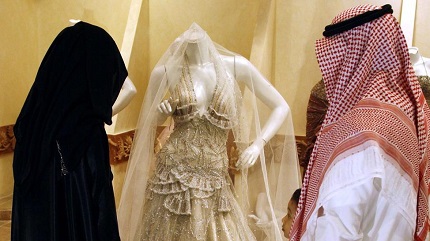After my recent discussions on the rising divorce rates in the UAE, early and arranged marriages were brought up by some readers as potential main factors driving the trend. These two types of marriages are related to each other and have been the norm in Emirati society for years.
Traditionally, the ideal marriage was tribal. Related families would encourage their offspring to marry cousins or other relatives in order to strengthen tribal bonds. Occasionally, they would encourage them to marry into another tribe in order to heal rifts between them. These types of arranged marriages were also perceived as safer, since families knew the background of the partner.
Marriage remains a well-defined turning point in a person’s life that bestows societal recognition and approval on both partners, but there has usually been more pressure on women to get married earlier than men.
Despite that, the average age of marriage keeps increasing. Marriage rates among 18- to 25-year-olds keep declining. In Abu Dhabi, data produced by the Statistics Centre Abu Dhabi (Scad) showed that Emirati women were marrying at an average age of 25.9 in 2012, up from 23.7 in 1995.
Such change might have occurred because of greater access to education and the general overall development of the UAE, which has changed many aspects of society. Nowadays, more women decide to delay marriage to realize personal aspirations, such as obtaining higher levels of education or fulfilling professional or occupational goals.
One can argue that as the marriage age increased, arranged and consanguineous marriages have been decreasing for the same reasons. However, both are still widely practiced.
In the Emirati context, the most predominant type of arranged marriage, in my view, is when two families organised a marriage and give the couple a few months (before the marriage contract is signed or afterwards) to get to know each other. Under such circumstances, the couple don’t meet before the arrangement and don’t get to interact outside the marriage context.
In its most extreme form, which is still practiced in some more conservative parts of the UAE, the couple would see each other only at the night of the wedding and rely on pictures and on reports by family members to know the appearance, personality and traits of the person they’re marrying.
Many people still believe that arranged marriage is the best way to get married.This is because parents are more experienced and can find a suitable man or woman for them. This can take away the stress of looking for a partner and also conforms to the long-held norms and traditions.
However, research also shows that arranged marriage might not be the ideal way to establish and sustain a marriage.In his 2003 paper, Major Trends Affecting Families in the Gulf Countries, Dr Yahya El Haddad from Bahrain University argues that since Gulf societies are still conservative in many parts, “most marriages are pre-arranged by parents, sisters, brothers, other relatives or friends”.
The research paper, which was compiled for the United Nations Social Policy and Development Division, cited other studies finding that “the very limited chances given by society to young men and women to get acquainted prior to signing the marriage contract, and possibly after signing it, is a main cause of high divorce rates”.
For example, a Kuwait study found that only 28 per cent of divorced women had the opportunity to get to know their husbands-to-be before engagement, at work, university or school, or as neighbors.
This could mean that the chances of an arranged marriage (at least as it’s practiced traditionally in the Gulf) working are not very high if we compare it to other types of marriages. And this could simply be because without getting acquainted outside the marriage context, it’s harder to determine the compatibility of couples, especially intellectually and personality-wise. During the engagement period or the months between signing the marriage contract to the wedding day, both the man and the woman would understandably do their best to appeal to the other person.
Nowadays, there are more opportunities for individuals to meet and get acquainted before marriage. Generally, one can argue that society is more receptive of the two S.e.xes working or studying together. This can provide greater opportunities for couples to interact within the limits set by society and religion before taking such life-changing decision.
We don’t have to give up our tradition altogether, but it could be time that we re-evaluate and improve what we know. What worked a few decades ago might not be sustainable for younger generations, especially in an ever-changing, fast-moving world.
Share the article



